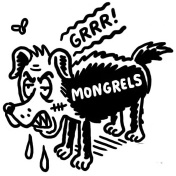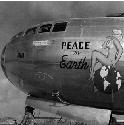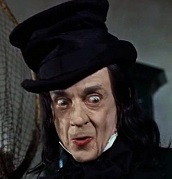|
Orange_Lazarus posted:So did we really have to drop the bombs on Hiroshima/Nagasaki to end the war and achieve the same results? For some reason in history class I just kept thinking "Couldn't we have dropped it on a military base or somewhere deserted just to show how destructive it was?" The thinking was, and still is, that the bomb was necessary to scare the Japanese into submission. The entire nation was hell bent on destruction by that point, surrender was just something that the everyone from the military to the civilians just could not accept. In preparation of an invasion the Japanese were prepared to throw the weight of their civilian population at the Allied forces. It would have been a disaster, a dirty, protracted, gorilla war, in the streets of Japan. I'm not sure how much I believe this but some argued that even with all the civilians that died from the two bombs, lives were probably saved in the grand scheme of things. Without the bombs it's possible that the Japanese wouldn't have surrendered without a great deal more of resistance. SpitztheGreat fucked around with this message at 02:26 on Nov 4, 2013 |
|
|
|

|
| # ? Jun 11, 2024 15:16 |
|
SpitztheGreat posted:The thinking was, and still is, that the bomb was necessary to scare the Japanese into submission. The entire nation was hell bent on destruction by that point, surrender was just something that the everyone from the military to the civilians just could not accept. In preparation of an invasion the Japanese were prepared to throw the weight of their civilian population at the Allied forces. It would have been a disaster, a dirty, protracted, gorilla war, in the streets of Japan. I'm not sure how much I believe this but some argued that even with all the civilians that died from the two bombs, lives were probably saved in the grand scheme of things. Another fun fact is that the military was considering the strategic use of atomic bombs in support of an invasion and were told that the GIs only need to avoid impacted areas for 48 hours so it probably would have been real messy.
|
|
|
|
fermun posted:That's true for August, but the production line was going strong enough for doing 2 or possibly 3 a month, the 2 over a few days thing was a strategic choice but if they hadn't surrendered it'd have been 2 a month or more. Which leads me to my favorite story about WW2, that of Marcus McDilda. He was a P-51 pilot that was shot down the day after Hiroshima and when captured was tortured to give up information about the atomic bombs. It wasn't until right before they threatened to decapitate him that he spilled his guts about the program to his interrogators. Things about how the US had divided positive and negative charges between a sheet of lead which once removed made an atomic bomb go off, that Tokyo was the next target in 24 hours, and that the US had hundreds of atomic bombs that were ready to use. Of course, it's obvious that what he told them was pure bullshit but they didn't know that so they shipped him to Tokyo where he meets a pacifist Japanese scientist that studied in the US before the war. Marcus confesses the truth to the scientist, but because they both just want the whole thing to end the scientist backs his story. The next day Nagasaki is bombed so now because of the pacifist scientist and that bombing confirming everything Marcus told them his interrogation gets mentioned along with the soviet invasion of Manchuria in the meeting the next day that ultimately leads to them surrendering. And yet, here we are as a nation 60 years removed from this thinking torture actually works. 
|
|
|
|
I think the primary concern for the US leadership during and after the Potsdam Conference (July 1945) might have been less about if the Japanese would surrender, and more about who would get the postwar influence. A Soviet sphere over Manchuria and perhaps much of mainland Japan would have been really ugly for the balance of power in Asia, though I don't know that the Soviets had the ability to beat Operation Downfall to the punch. In this situtation, it would make sense to do virtually anything to get the Japanese to surrender quickly and to surrender to America.
|
|
|
|
Before the first bomb was dropped my grandfather (entered the marine corp in 39, was on Guadalcanal) was being told that a million men would probably die in the invasion of Japan. I've seen drawings of plans for Japanese children to be trained to stand in the surf with snorkels to hold bamboo poles with mines attached to destroy landing craft. They were being told that every single Japanese person was being prepared to fight against the invading allies, and that there weren't going to be civilians. I don't know how much of that is true. But I've seen the monuments on the suicide cliffs in Saipan, the bomb pits on Tinian, and I've read quite a bit about the pacific war. Everything I've read points to that the invasion of Japan would have been bad very very bad.
|
|
|
SpitztheGreat posted:The thinking was, and still is, that the bomb was necessary to scare the Japanese into submission. The entire nation was hell bent on destruction by that point, surrender was just something that the everyone from the military to the civilians just could not accept. In preparation of an invasion the Japanese were prepared to throw the weight of their civilian population at the Allied forces. It would have been a disaster, a dirty, protracted, gorilla war, in the streets of Japan. I'm not sure how much I believe this but some argued that even with all the civilians that died from the two bombs, lives were probably saved in the grand scheme of things. Without the bombs it's possible that the Japanese wouldn't have surrendered without a great deal more of resistance. The debate (rightly) continues to this day about whether the use of atomic weapons was justified, but there is legitimacy to the thought that the Japanese were stubborn enough to fight a possible invasion of the home islands down to the last man. There was even an attempted coup d'tat amongst the military command to depose Emperor Hirohito because they couldn't bear the thought of surrender. EDIT: Operation Downfall, the proposed ground invasion, was predicted by everyone involved to be a bloodbath. How bad? They had nearly 500,000 Purple Hearts minted in anticipation, and the US has still not exhausted that stock even with every conflict we've been involved in since then. 3 fucked around with this message at 02:47 on Nov 4, 2013 |
|
|
|
|
Orange_Lazarus posted:So did we really have to drop the bombs on Hiroshima/Nagasaki to end the war and achieve the same results? For some reason in history class I just kept thinking "Couldn't we have dropped it on a military base or somewhere deserted just to show how destructive it was?" That's an impossible counterfactual to answer, and oceans of academic ink have been spilled over it. If you have access to a public library, pick up Robert Griffith's book Major Problems In American History Since 1945, it has a chapter devoted to the decision to drop the bombs with a variety of primary sources discussing the decision at the time and essays from three different historians about the ethics, military strategy, and diplomacy involved in the decision. I have scan of the chapter somewhere, let me know if you'd actually be interested in it.
|
|
|
|
A Winner is Jew posted:Which leads me to my favorite story about WW2, that of Marcus McDilda. This is a really interesting story. I'd love a source on it -- all I can find is an article from a few years ago in The Journal Of American-East Asian Relations with a cursory search.
|
|
|
|
Of course the other other thing to mention is that what made the destruction of Hiroshima and Nagasaki so devastating wasn't the amount of people killed but that they only did it with one bomb. The US had been bombing Japan since the of tail end of 1944. In one night 330 bombers incinerated a quarter of Tokyo and killed 100,000 people. The difference between that and the nuke was that the US could do it again much cheaper. The total deaths range from 323,000 to 900,000 (the uncertainty came from the destruction of records) and that's not even factoring in displacement. Here's a map from a US Department of War (old name of the current Department of Defense) report that showed the damage done to Japanese cites by US bombing and the equivalent size of the city with a US one. 
LP97S fucked around with this message at 03:06 on Nov 4, 2013 |
|
|
|
LP97S posted:Of course the other other thing to mention is that what made the destruction of Hiroshima and Nagasaki so devastating wasn't the amount of people killed but that they only did it with one bomb. The US had been bombing Japan since the of tail end of 1944. In one night 330 bombers incinerated a quarter of Tokyo and killed 100,000 people. The difference between that and the nuke was that the US could do it again much cheaper. The "Fog of War" documentary sequence on this campaign is heartbreaking. It's very difficult to even comprehend that amount of death.
|
|
|
|
While we're on the topic, how bellicose was the US really toward Japan in the 30s, and did the Japanese general staff really feel that open war with the US was a winning play? To me, it's just a weird narrative - Meiji era Japan radically breaks with the old ways, reforms all aspects of Japan in the name of modernization, and methodically builds up an empire to rival the European colonial powers. I understand that the US-led embargo following the second war with China made fighting difficult, but it's hard to see generals' frustration leading directly to a war that, on paper, did not look winnable.
|
|
|
|
Related topic: People say that the reason the bomb was dropped on the Japanese is because of racism. That the germans were spared because they were white. http://www.avweb.com/news/profiles/PaulTibbets_StudsTerkel_EnolaGayInterview_2002_196499-1.html quote:Paul Tibbets: My edict was as clear as could be. Drop simultaneously in Europe and the Pacific because of the secrecy problem - you couldn't drop it in one part of the world without dropping it in the other. And so he said, "I don't know what to tell you, but I know you happen to have B-29's to start with. I've got a squadron in training in Nebraska - they have the best record so far of anybody we've got. I want you to go visit them, look at them, talk to them, do whatever you want. If they don't suit you, we'll get you some more." He said: "There's nobody could tell you what you have to do because nobody knows. If we can do anything to help you, ask me." I said thank you very much. He said, "Paul, be careful how you treat this responsibility, because if you're successful you'll probably be called a hero. And if you're unsuccessful, you might wind up in prison." quote:Paul Tibbets: Unknown to anybody else - I knew it, but nobody else knew - there was a third one. See, the first bomb went off and they didn't hear anything out of the Japanese for two or three days. The second bomb was dropped and again they were silent for another couple of days. Then I got aphone call from General Curtis LeMay [chief of staff of the strategic air forces in the Pacific]. He said, "You got another one of those drat things?" I said, "Yes sir." He said, "Where is it?" I said, "Over in Utah." He said, "Get it out here. You and your crew are going to fly it." I said, "Yes sir." I sent word back and the crew loaded it on an airplane and we headed back to bring it right on out to Tinian and when they got it to California debarkation point, the war was over. He also tells what it was like to drop a nuke. Good interview. Worth reading. But Studs Terkel always is. Warcabbit fucked around with this message at 03:17 on Nov 4, 2013 |
|
|
|
That doesn't make sense unless there's a racist time machine, the War in Europe was over before the Trinity test.Vivian Darkbloom posted:While we're on the topic, how bellicose was the US really toward Japan in the 30s, and did the Japanese general staff really feel that open war with the US was a winning play? To me, it's just a weird narrative - Meiji era Japan radically breaks with the old ways, reforms all aspects of Japan in the name of modernization, and methodically builds up an empire to rival the European colonial powers. I understand that the US-led embargo following the second war with China made fighting difficult, but it's hard to see generals' frustration leading directly to a war that, on paper, did not look winnable. Japan already had large military power in the government since 1900 but after Hirohito took power it got worse. The civilian government was butting heads with the military leading up to the murder of Prime Minister Inukai Tsuyoshi by naval officers during a failed reactionary coup in 1932 and another coup attempt in 1936 which lead to the deaths of two former Prime Ministers and the execution of the majority of the coup planners. This failure ironically lead to more influence by the military onto political affairs as the military was divided over the 36 coup and the anti-coup forces were considered the victors of this. Meanwhile, before all of this killing started Japan had invaded and occupied Manchuria in 31 and there were dealing with Korean nationalists ever since they annexed the peninsula in 1910. It was all crazy before this but Hirohito and the military basically escalated to keep the reactionaries down and in the process cut out anyone not pro-military.
|
|
|
|
Warcabbit posted:Related topic: People say that the reason the bomb was dropped on the Japanese is because of racism. That the germans were spared because they were white. Yeah there's also the fact that Germany surrendered before the nukes were ready (Trinity test was July 12, Germany had surrendered May 8). That seems to me to be one of the primary reasons Germany was not nuked, and according to most of what I remember reading throuhout most of the Manhattan Project Germany was seen as the most likely target for the first atomic bomb, as part of the reason for kickstarting the whole thing was fears of scientists fleeing the axis countries that Germnay might develop an atomic bomb (though in hindsight it seems that Germany wasn't really approaching the problem in the most efficient or dedicated manner, and they had also managed to scare away many of the scientists most qualified to work on such a project, alot of whome were either Jewish or socialists).
|
|
|
|
Warcabbit posted:Related topic: People say that the reason the bomb was dropped on the Japanese is because of racism. That the germans were spared because they were white. Well, part of this problem is the war was over in Europe by February 1945. At that point it was just a question of mopping up the last of devastated German units in conventional land battles with the post war makeup of Europe already determined. If it was June 1945 and the allies/Soviets had been stuck on the Rhine/Vistula for the past 6 months and bleeding troops by the tens of thousands because of German resistance, we might have nuked Germany.
|
|
|
|
3 posted:The debate (rightly) continues to this day about whether the use of atomic weapons was justified, but there is legitimacy to the thought that the Japanese were stubborn enough to fight a possible invasion of the home islands down to the last man. There was even an attempted coup d'tat amongst the military command to depose Emperor Hirohito because they couldn't bear the thought of surrender. To be clear, I was not trying to come down on either side of the issue. The issue about the Purple Hearts is a fact I had not heard before, and I think that's really incredible. To change gears a little, I'm always fascinated by the utter destruction of the American Indians along the east coast in the years after the Europeans set up shop. I'm from Upstate New York and everything around me bares a native name, but by the time of the Revolution the populations were already devastated. I'd like to learn more about the tribes/nations in the north east from say 1600-1820, because by the time Buffalo, Syracuse, and even Albany are established and/or become population centers there doesn't seem to be much of a presence by the natives in the region. Edit- I know my topic is broad, I'm looking for some book recommendations if anyone knows of good ones. SpitztheGreat fucked around with this message at 04:42 on Nov 4, 2013 |
|
|
|
An interesting fact about the atomic bomb is I'm alive because of it. My Grandfather was in the Coast Guard and was assigned to sail an LST on day one, wave one of the invasion of Japan. I owe my life to nuclear weapons.
|
|
|
|
Mycroft Holmes posted:An interesting fact about the atomic bomb is I'm alive because of it. My Grandfather was in the Coast Guard and was assigned to sail an LST on day one, wave one of the invasion of Japan. I owe my life to nuclear weapons. On a similar note I owe my life to the fact that my Grandfather was a raging drunk. He was stationed at Pearl Harbor and was out drinking (probably AWOL for all I know) and was stumbling back to the barracks when he saw the Japanese planes flying in, low and slow. He said that it was really quiet, they hadn't yet begun to fire, but that he saw the red sun and knew that they were going to war. His not being on base may have saved his life.
|
|
|
|
SpitztheGreat posted:To be clear, I was not trying to come down on either side of the issue. The issue about the Purple Hearts is a fact I had not heard before, and I think that's really incredible. It's been suggested before, but Charles Mann's 1491 is an excellent broad introduction to precolombian North American and some South American societies. There's a substantial section on East Coast North Americans. Get that book, then raid his bibliography at the back, it's extensive and reliable.
|
|
|
|
SpitztheGreat posted:I'm not sure how much I believe this but some argued that even with all the civilians that died from the two bombs, lives were probably saved in the grand scheme of things. Without the bombs it's possible that the Japanese wouldn't have surrendered without a great deal more of resistance. The atomic bombs were only a drop in the ocean really.
|
|
|
|
Allied forces in general had gotten real good at firebombing. Load the first couple waves with HE to blow roofs off and expose timbers, then follow with massive amounts of Incendiary. They'd gotten it down to a science and were pretty reliably reducing cities on autopilot by just generating a highly sustainable firestorm covering much of the city. I wrote a term paper on Dresden a very long time ago and the first hand accounts of stuff, like families being pulled apart by fire-induced winds, siblings watching parents and neighbors being bodily sucked into the maelstrom, were rather horrific. The higher end of the counts for that specific city were into six digits, but even conservative estimates of civilian deaths weren't exactly minute. As someone said, the A-bomb was just one hell of a lot cheaper in practically all aspects that matter in war.
|
|
|
|
SpitztheGreat posted:On a similar note I owe my life to the fact that my Grandfather was a raging drunk. He was stationed at Pearl Harbor and was out drinking (probably AWOL for all I know) and was stumbling back to the barracks when he saw the Japanese planes flying in, low and slow. He said that it was really quiet, they hadn't yet begun to fire, but that he saw the red sun and knew that they were going to war. His not being on base may have saved his life. Man, my family always being born in-between the major generation booms leaves us out of all the historically important horrible wastes of human life. My grandfather was drafted into the Coast Guard during the Korean War and all he did was guard the POW camps and get drunk on moonshine that his recruit friends from Kentucky smuggled into Boot Camp.
|
|
|
|
Mycroft Holmes posted:An interesting fact about the atomic bomb is I'm alive because of it. My Grandfather was in the Coast Guard and was assigned to sail an LST on day one, wave one of the invasion of Japan. I owe my life to nuclear weapons. Same for me, but my grandfather was in the Marines.
|
|
|
|
The Entire Universe posted:Allied forces in general had gotten real good at firebombing. Load the first couple waves with HE to blow roofs off and expose timbers, then follow with massive amounts of Incendiary. They'd gotten it down to a science and were pretty reliably reducing cities on autopilot by just generating a highly sustainable firestorm covering much of the city. I wrote a term paper on Dresden a very long time ago and the first hand accounts of stuff, like families being pulled apart by fire-induced winds, siblings watching parents and neighbors being bodily sucked into the maelstrom, were rather horrific. The higher end of the counts for that specific city were into six digits, but even conservative estimates of civilian deaths weren't exactly minute. fuckin japs had human vivisection down to a science (USER WAS PUT ON PROBATION FOR THIS POST)
|
|
|
|
Cool Bear posted:fuckin japs had human vivisection down to a science Yes, war is hosed up and bullshit.
|
|
|
|
The Entire Universe posted:Yes, war is hosed up and bullshit. So nuke them. Or lets wait a few weeks to see if they can clean up some of their massacre sites and conditionally surrender. I hate america during the cold war and am extremely liberal and I also want bloody death to our enemies in ww2.
|
|
|
|
LP97S posted:That doesn't make sense unless there's a racist time machine, the War in Europe was over before the Trinity test. quote:One day [in September 1944] I'm running a test on a B-29, I land, a man meets me. He says he just got a call from General Uzal Ent [commander of the second air force] at Colorado Springs, he wants me in his office the next morning at nine o'clock. He said, "Bring your clothing - your B4 bag - because you're not coming back. " Well, I didn't know what it was and didn't pay any attention to it - it was just another assignment. I got to Colorado Springs the next morning perfectly on time. A man named Lansdale met me, walked me to General Ent's office and closed the door behind me. With him was a man wearing a blue suit, a US Navy captain - that was William Parsons, who flew with me to Hiroshima - and Dr Norman Ramsey, Columbia University professor in nuclear physics. And Norman said: "OK, we've got what we call the Manhattan Project. What we're doing is trying to develop an atomic bomb. We've gotten to the point now where we can't go much further till we have airplanes to work with." Planning, man. You have to plan all sides of things at once if you want to get things deployed as fast as possible.
|
|
|
|
Cool Bear posted:So nuke them. Or lets wait a few weeks to see if they can clean up some of their massacre sites Actually they didn't even need to bother with that unless they fell into soviet hands at which point they were given the gentlest slap on the wrist.
|
|
|
|
LP97S posted:That doesn't make sense unless there's a racist time machine, the War in Europe was over before the Trinity test. It makes sense that a radical militarist administration would view force as the most important instrument to advance Japanese interests, yeah. Especially after reading about the Kyūjō coup attempt. It just seems like it could have been very different if the military had been willing to continue to build up their empire in the way they'd been doing – conquer weak neighbors, make strong friends, play the long game. The British, French, and Belgian imperial projects were as brutal or worse, and though they didn't manage to hang on to their colonial empires either they came out of the war looking a lot less terrible than Japan.
|
|
|
|
Vivian Darkbloom posted:While we're on the topic, how bellicose was the US really toward Japan in the 30s, and did the Japanese general staff really feel that open war with the US was a winning play? To me, it's just a weird narrative - Meiji era Japan radically breaks with the old ways, reforms all aspects of Japan in the name of modernization, and methodically builds up an empire to rival the European colonial powers. I understand that the US-led embargo following the second war with China made fighting difficult, but it's hard to see generals' frustration leading directly to a war that, on paper, did not look winnable. Not at all in the opening of the 30s, increasingly throughout. Sentiment towards Japan in the 20s was influenced by the Great Kanto Earthquake, which saw a lot of press coverage in the states and triggered a wave of charitable giving to Japan. In the 30s Japan invaded China, which had good relations with the United States at the time, and since foreign journalists were off-limits to the Japanese army their atrocities in China were very well covered in the Western media. By the end of the 1930s anti-Japanese sentiment was running very high in the U.S. almost entirely because of their barbaric treatment of the Chinese. To answer the second question, the 1930s Japanese government was totally dysfunctional. The civilian government collapsed in the late 20s and was not reconstituted in an effective form until the U.S. occupation. The Army and Navy were running their own things and in the vacuum of civilian power had effective control of the state. The Army and Navy did not coordinate effectively or agree on many things. There were elements in the Navy (see Yamamoto's famous sleeping giant quote) that was aware of how unwinnable a war with the States was but they were not at the top leadership. The Army got itself deeper and deeper into trouble with poor strategic thinking and believing its own propaganda. The invasion of China stretched the IJA's resources to the limit but the only way out of that quagmire that they found acceptable was to seize SE Asia's resources, which meant war with the U.S. The Navy was also seduced by their initial successes but had to come to terms with reality much earlier than the Army after the USN got its poo poo together and started pushing west. Basically the answer is that Japan's leadership was delusional and dysfunctional.
|
|
|
|
Cool Bear posted:So nuke them. Or lets wait a few weeks to see if they can clean up some of their massacre sites and conditionally surrender. I hate america during the cold war and am extremely liberal and I also want bloody death to our enemies in ww2.
|
|
|
|
Raskolnikov38 posted:Actually they didn't even need to bother with that unless they fell into soviet hands at which point they were given the gentlest slap on the wrist. We could have hung fewer. Also, I would smile at MacArthur's hanging.
|
|
|
|
The Entire Universe posted:Allied forces in general had gotten real good at firebombing. Load the first couple waves with HE to blow roofs off and expose timbers, then follow with massive amounts of Incendiary. They'd gotten it down to a science and were pretty reliably reducing cities on autopilot by just generating a highly sustainable firestorm covering much of the city. I wrote a term paper on Dresden a very long time ago and the first hand accounts of stuff, like families being pulled apart by fire-induced winds, siblings watching parents and neighbors being bodily sucked into the maelstrom, were rather horrific. The higher end of the counts for that specific city were into six digits, but even conservative estimates of civilian deaths weren't exactly minute. The discussion shouldn't be about dropping the atomic bombs or not. It should be about whether or not the strategic bombing campaign should have been done in the first place.
|
|
|
|
Cool Bear posted:So nuke them. Or lets wait a few weeks to see if they can clean up some of their massacre sites and conditionally surrender. I hate america during the cold war and am extremely liberal and I also want bloody death to our enemies in ww2. Yes all those civilians who died from bombings in Japanese cities personally participated in Japanese war crimes
|
|
|
|
Cool Bear posted:So nuke them. Or lets wait a few weeks to see if they can clean up some of their massacre sites and conditionally surrender. I hate america during the cold war and am extremely liberal and I also want bloody death to our enemies in ww2. Maybe if you mop up your bile real quick you can get the point of what I was saying. I'll save you the time, though, and point out that I was explaining that war makes people do hosed up things and nuking people was not some kind of new level of carnage after what everyone had been doing for 5 goddamn years at that point. Spooge indignant elsewhere.
|
|
|
|
Here in the American History thread, I don't want anyone regretting nuking those freaks.
|
|
|
|
gradenko_2000 posted:The discussion shouldn't be about dropping the atomic bombs or not. It should be about whether or not the strategic bombing campaign should have been done in the first place. Yes. Because if they weren't then the compulsion for the Japanese to surrender wouldn't have existed. You compel an enemy nation to surrender by hitting them where they live and proving that you can keep hitting them indefinitely and their leaders can't do anything to stop it. Doubly so if we're talking about Japan, who had a very old and longstanding warrior tradition that made the likelihood of them willingly surrendering all but non-existent without dealing extremely severe blows to their morale and psyche.
|
|
|
|
Fojar38 posted:Yes. Because if they weren't then the compulsion for the Japanese to surrender wouldn't have existed. Well yeah, I agree. My point was more like if we already accept the premise that strategic bombing was the correct decision, then the atomic bombs are just an extension of that, and not nuking Hiroshima/Nagasaki doesn't really make much difference if they get firebombed anyway.
|
|
|
|
Cool Bear posted:Here in the American History thread, I don't want anyone regretting nuking those freaks. Are you honestly suggesting that the hundreds of thousands of Japanese people who died in the two nuclear bombings were all 'freaks'? Most soldiers regret having to kill people who are shooting at them but accept it as a grim necessity, not regretting nuclear bombing, even if it was necessary, would be absurd.
|
|
|
|

|
| # ? Jun 11, 2024 15:16 |
|
ReV VAdAUL posted:Are you honestly suggesting that the hundreds of thousands of Japanese people who died in the two nuclear bombings were all 'freaks'?
|
|
|






























